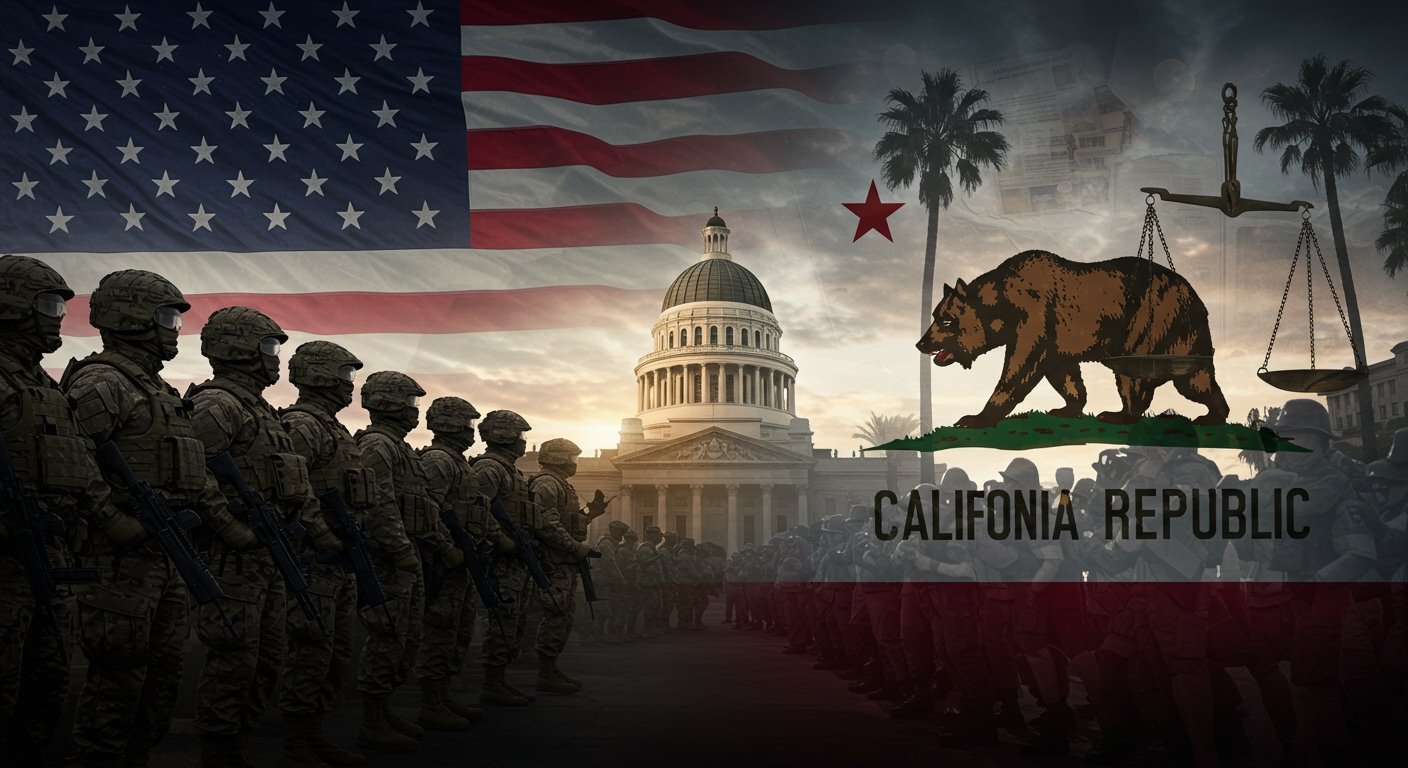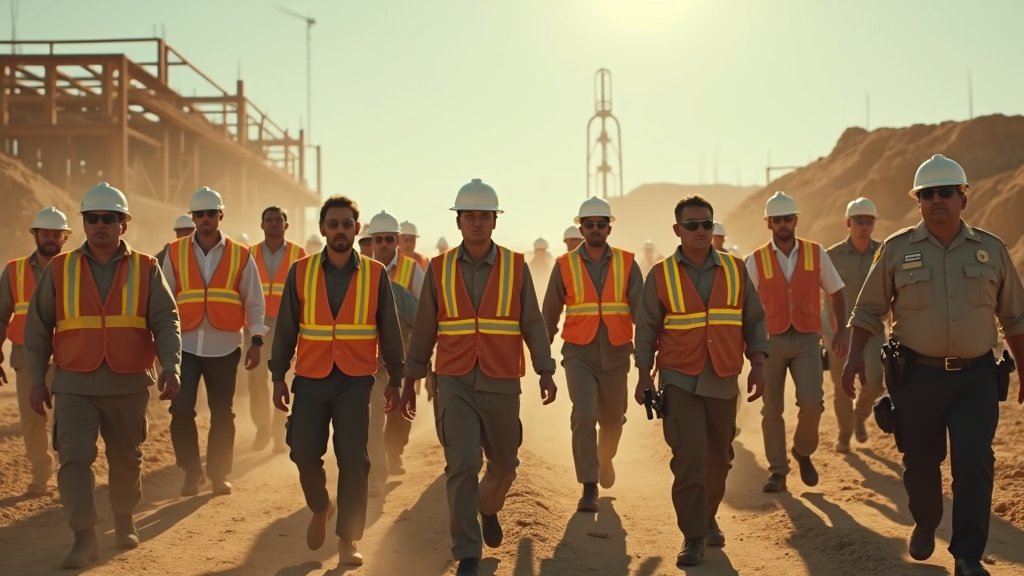LOS ANGELES, CA – In a significant ruling that has reignited debate over the balance of power between the federal government and individual states, the U.S. 9th Circuit court has sided with the Trump administration, upholding the President’s authority to deploy and control National Guard troops during domestic unrest, even over the objections of state leadership. The decision stems from a lawsuit filed by California Governor Gavin Newsom and Attorney General Rob Bonta, challenging the administration’s actions concerning protests in Los Angeles.
The legal battle originated from events surrounding ICE protests in Los Angeles, during which the Trump administration made the decision to deploy a substantial federalized force. This included approximately 4,000 National Guard members and 700 Marines. The administration asserted that this deployment was necessary to safeguard federal buildings and prevent perceived acts of rebellion.
The Controversy Unfolds: Federal Deployment in California
The deployment of federal forces during civil demonstrations has long been a contentious issue in the United States, raising complex questions about jurisdiction, authority, and the appropriate use of military or paramilitary personnel in civilian contexts. The Trump administration’s action in Los Angeles brought these questions to the forefront, particularly in California, a state often at odds with federal policies under the previous administration.
The stated purpose of the deployment – protecting federal property and preventing rebellion – was met with skepticism and sharp criticism from state officials. While the administration characterized the situation as potentially leading to unrest requiring a robust federal presence, state officials offered a contrasting view of the demonstrations.
California’s perspective on the protests in question characterized them as largely “unrebellious” and estimated participation at around 1,000 people. This description stood in stark contrast to the scale of the federal deployment, which involved thousands of armed personnel, prompting concerns that the response was disproportionate to the actual level of threat.
California’s Legal Challenge: Asserting State Sovereignty
In response to the federal deployment, Governor Gavin Newsom and Attorney General Rob Bonta initiated legal action. Their lawsuit specifically targeted the Trump administration’s deployment and the manner in which the National Guard and Marines were utilized during the ICE protests in Los Angeles. The core of their argument rested on the principle of state sovereignty.
Governor Newsom publicly articulated his view that the federal action constituted a serious breach of state sovereignty and an abuse of executive power. Under normal circumstances, state governors command their state’s National Guard units. While the President has the authority to federalize the National Guard and place them under federal control, the circumstances under which this power can be exercised and the extent of that authority have been subjects of historical and legal debate, particularly when governors dissent.
Newsom and Bonta’s lawsuit sought to challenge the federal assertion of control over the National Guard within California borders without the state’s consent and during what they viewed as a state matter of managing peaceful, albeit passionate, protests. They argued that the deployment was an overreach of federal authority, undermining the state’s primary responsibility for maintaining public order within its own jurisdiction.
The Court Weighs In: A Defining Decision
The legal challenge made its way to the U.S. 9th Circuit court, a pivotal venue for many significant legal disputes originating in the western United States. The court was tasked with interpreting the complex interplay of federal statutes and constitutional principles governing the President’s power to call forth the militia, which includes the National Guard, and the states’ reserved powers.
This week, the U.S. 9th Circuit court delivered its ruling, siding with the Trump administration. The court’s decision effectively affirmed the President’s authority to retain control of the National Guard troops once they have been federalized, even when the state governor objects to their deployment or continued presence in the state. The ruling underscored the broad powers granted to the President in matters related to national security and the protection of federal interests.
The court’s interpretation hinged on federal law and precedent concerning the President’s power to use the militia to suppress insurrection or enforce federal laws. By validating the administration’s control over the deployed forces, the ruling dealt a blow to California’s assertion that its sovereignty had been unlawfully infringed upon by the federal intervention.
Implications and Perspectives
The U.S. 9th Circuit’s decision carries significant implications for the balance of federal and state power, particularly during periods of civil unrest. It suggests that once the President invokes federal authority to deploy the National Guard, state governors may have limited recourse to regain control or dictate their use, even within state borders.
Critics of the decision and the original federal action argue that the militarization of responses to civilian protests can escalate tensions and potentially infringe upon civil rights, including the right to peaceful assembly. The deployment of units like the Marines, typically reserved for overseas military operations, further amplified these concerns, raising questions about the blurring lines between military action and domestic law enforcement.
Conversely, proponents of the ruling might emphasize the federal government’s inherent responsibility to protect its property and ensure the enforcement of federal laws across the nation. They might argue that the President requires clear authority to respond decisively to threats deemed to be beyond the capacity or willingness of state authorities to manage.
The ruling from the U.S. 9th Circuit solidifies, at least within that circuit’s jurisdiction, the President’s significant power over federalized National Guard units. While the specific circumstances involved protests concerning ICE, the precedent set by this decision could affect how federal-state dynamics play out in future situations involving federal property, perceived unrest, and the deployment of military or paramilitary forces on domestic soil. The legal landscape surrounding the division of power in such scenarios remains a critical area of focus for civil rights advocates and state officials alike.





